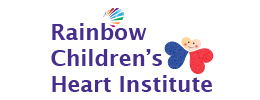A heart transplant is an operation in which a cardiothoracic surgeon will replace your child’s failing heart with a new donor heart. Children often require transplant because of a uncorrectable congenital heart defect and cardiomyopathies (diseases of the heart muscle). Once the transplant team has finished its evaluation and your child has been accepted as a transplant candidate, he or she will be placed on the nationwide transplant waiting list. A number of factors determine your child’s initial place on the donor heart waiting list including: Blood type, Heart Size and Overall medical condition When you are notified that a donor heart is available, you and your transplant team have a limited amount of time to decide to accept the donation, and you will be expected to travel immediately with your child to the transplant hospital.
During the operation, our cardiothoracic surgeon who specializes in heart transplantation will remove your child’s diseased heart and will then place the new heart into his or her chest and sew into place. Your child will be placed under general anesthesia during the procedure and also will be placed on a heart-lung machine (sometimes called “the pump”) during the operation. The machine temporarily takes over the function of the heart and lungs during surgery to maintain blood circulation and oxygen flow through the body.
Your child will need to stay in the intensive care unit (ICU), so that our doctors and nurses can carefully monitor your child’s heart function. Close follow-up is critical during the first few days after a transplant to ensure that your child does not get an infection and that his or her new heart is working well. Your child will need to make regular appointments with a heart specialist and take immunosuppressive medications and other medicine for the rest of his or her life to control the side effects of the transplant.

